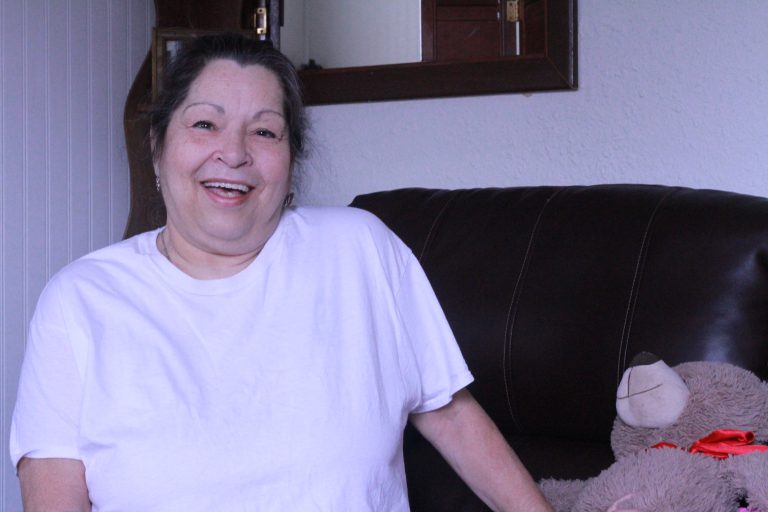In the course of reporting my previous story on the gap between wages and the cost of housing, I spent time following a case manager with the Southern Illinois Coalition for the Homeless.
During that time, I met several people who shared their stories of how they struggled to find housing and how the coalition has helped them.
Every person who is homeless has their own story. But the two below are examples of common reasons for homelessness — living on a fixed income and finding housing after being released from prison.
Donna: Living on Disability
Donna Jamison came the homeless coalition from the Women’s Center, a domestic violence shelter in Carbondale. She has a disability and relies on Social Security benefits to support herself.
Before she came to the Women’s Center, Donna had been living with her daughter and granddaughter in a home owned by her daughter’s in-laws. Until the day her ex-husband showed up.
He’d come all the way from Tennessee looking for her, she said. Donna felt unsafe and worried that staying would put her granddaughter at risk.
“You never know what somebody’s gonna do, that’s already followed you from Tennessee,” she said. “A bullet doesn’t know who it’s meant for, you know, and if he were to do something desperate like shoot into the house or something.”
The Women’s Center took her in — but finding an apartment on her limited budget was another hurdle.
Donna suffers from neuropathy, which makes her unsteady on her feet. Every job she’s had, she said, from waitress to certified nursing assistant, would require her to spend large amounts of time standing and walking.
“Sometimes I’ve got to hold on the walls just to get from my living room to my kitchen and this is not a huge apartment,” she said.
She also struggled with the logistics of finding an apartment while homeless. Landlords weren’t eager to rent to someone without a permanent address. And she struggled to gather money for deposits and first month’s rent.
“[A] lot of people that are homeless have an income through disability or social security,” she noted. The average monthly disability payment in the U.S. is $1,374.51. “With that amount, you can barely get the first month and half the deposit paid much less, you know, the essentials you need, like electric and water and furniture.”
Darius: Life After Prison
Darius isn’t just a client of the Southern Illinois Coalition for the Homeless — he works there as well. It’s a job he found after he was released from prison.
He spent eleven years incarcerated on a drug conviction. When released, he had few qualifications for employment.
“They make you get your GED, anything after that you have to learn it on your own. They don’t teach you skills,” he said.
Darius asked not to use his last name, because he wants to limit the impact his past criminal record and housing issues have on his ability to get into college.
Apprenticeship programs offered in prison, he said, had few spots available and they usually went to inmates serving longer sentences. College courses weren’t offered.
He heard that some inmates were able to take college classes if they could pay for them — which he couldn’t, on a prison wage he said was only 14 cents an hour.
At first, Darius stayed in a residential center for formerly incarcerated individuals. But his time there was limited, and as a single man with a felony conviction, he was disqualified from most programs offering affordable housing.
When he came to the coalition, he didn’t just find housing assistance. He also found a job, which he has held for nearly seven years. He plans on taking college classes in hopes of becoming a case manager or a social worker so he can help others who are in a tough situation.
Without the help he’s received, he’s not sure what would have happened.
“There would have been a lot of hard decisions I had to make, I wouldn’t have been able to maintain my living expenses without help from the coalition,” he said. “So I think that there was a real high probability that I would have turned back into something negative.”


